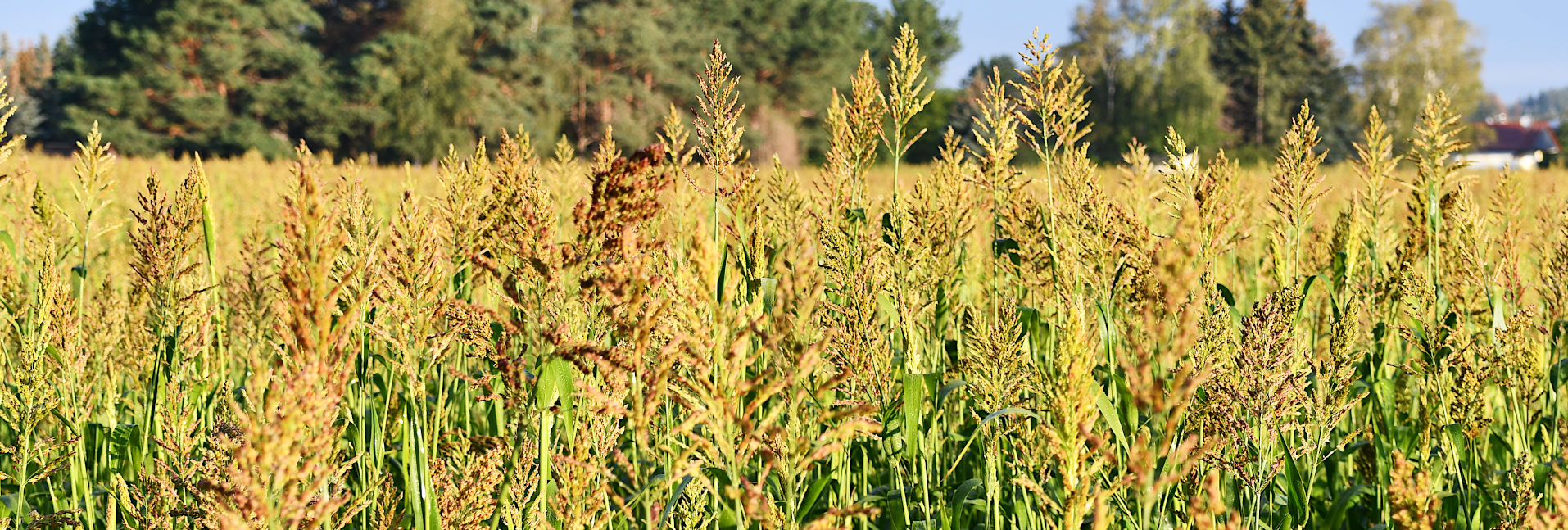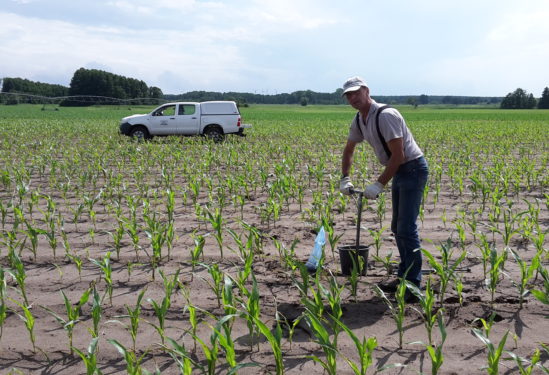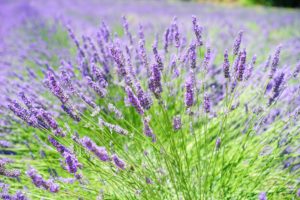
Agriculture

FIB e.V. investigates the conversion of infertile raw soils into productive, diversely usable farmland. Thereby, the core aspect is the reestablishment of soil fertility and basic soil functions. To speed up biological nutrient cycling we study the application of soil improvers, for example lignite or biocharbased humus fertilisers and organic residual materials.
Das FIB e.V. erforscht die Entwicklung von unfruchtbaren Neulandböden hin zu produktiven, vielfältig nutzbaren Pflanzenstandorten. Im Mittelpunkt steht die Wiederherstellung der Bodenfruchtbarkeit. Um den Nährstoffkreislauf “anzukurbeln” wird der Einsatz neuartiger Bodenverbesserungsmittel getestet, beispielsweise von Humusdüngern aus veredelter Braun- oder auch Pflanzenkohle (Doppelung im deutschen Text, an dieser Stelle nicht mehr eingefügt und übersetzt)
Besides the testing of soil amendments one focus lies on the choice of suitable field crops. Their management should be soil conserving and raising humus contents. In this context, renewable raw materials are becoming increasingly important in the production of bioenergy and for the industrial manufacture of products. To this end, we run pot and field experiments − in cooperation with practice partners. For example, quite drought tolerant dye, oil and medicinal plants are ecologically important cropping alternatives, especially on marginal and “underutilised” land.
But not only plant cultivation and management are of interest: Complex feasibility assessments examine the whole production line and exploitation chain − starting with planting or seeding up to the marketable products. This includes the techno-economical feasibility check but also an overall ecological balance − looking at sustainability indicators.
The Northeastern German Lowlands with the Lusatian Mining District are one of the most climate-sensitive regions in Central Europe. Even in a hydrological “normal year” the low water supply is growth-limiting. Especially sorption-poor sandy soils without contact to the groundwater are quite vulnerable to climate impact. They account for 90 percent of the agricultural land in the region. Especially, extreme weather conditions like early summer drought periods are getting more frequent. Therefore, agricultural irrigation of special crops, field vegetables and root crops gains in importance for farmers.
Our research focus lies on the further development of water-saving irrigation models, control systems and technical features − buzzword: “precision irrigation”. Furthermore, FIB e.V. provides different services for farmers, for example, the daily calculation of the additional water quantity for each irrigation field.

The German coal phase-out in 2038 calls for feasible options to secure jobs and to save the long-term economical benefit. To that Green Deal, agriculture and knowledge-based bio-economy may contribute considerably and the cultivation of renewable materials calls for more land − without conflicts to food production. On the other hand, farming and notably “agricultural turnaround” has to face the future tasks: more greening, efficient resource protection and adaptation to climate change, with all economical challenges for each farmer.
At this point, FIB e.V. is testing new promising crops, especially on low-yielding marginal farmland, also considering low-input management systems. Experimental results show that in our summer-dry region the cultivation of perennial lavender, black locust (with short rotation) but also Sorghum dual hybrids is quite promising, for example.
